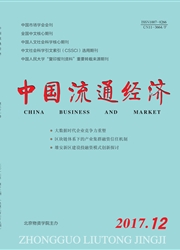

 中文摘要:
中文摘要:
2008年中国政府正式启动人民币国际化进程,短短5年时间先后在诸多领域进行改革和创新,取得了明显的效果。但是,截至2013年5月人民币在全球支付货币中排名第13位,市场占有率仅0.84%,与中国全球第二大经济体的地位极不相称。本文认为当前人民币国际化的路径存在一定的制度缺陷和障碍,在现有的制度安排下,通过经常项目大规模地输出人民币.必然会造成资本项目和外汇市场的不平衡,迫使政府在这两个市场干预或管制,导致资本项目自由化和汇率自由浮动无法实现,从而丧失人民币国际化的两大前提,最终影响人民币国际化的进程,影响中国的金融安全,难以实现国家整体利益的最大化。针对这些问题,应改革汇率制度安排、完善金融市场体系、创新金融衍生产品以及塑造人民币国际主导货币形象等。
 英文摘要:
英文摘要:
In 2008, China formally launched the program of RMB internationalization; and we had made great achievements in related reform and innovation during the following five years. Up to May, 2013, among all global payment currencies, RMB ranked No, 13, and the market share of that was only 0.84%, which obviously did not match China's global position of the second large economic entity. The author believes that there are some institutional defects and barriers in the existing route of RMB internationalization. With the current institutional arrangement, the output of RMB through current account will lead to the imbalance between capital account and foreign exchange market, which will force the government carry out market intervention or governance, hinder the liberalization of capital account and the floating of exchange rate, loose the two premises of RMB internationalization, have the negative effect on the process of that and China's financial safety, and hinder the realization of maximizing the overall national interest. Aiming at these problems, the author puts forward some countermeasures that we should reform the institutional arrangement of exchange rate, perfect the financial market system, make innovation in financial derivatives products and create the image of RMB as the dominant currency.
 同期刊论文项目
同期刊论文项目
 同项目期刊论文
同项目期刊论文
 期刊信息
期刊信息
